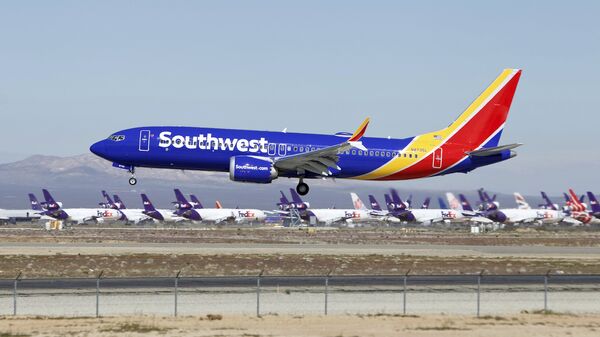Airlines around the world have grounded their Boeing 737 Max fleets since a pair of crashes in October 2018 and March 2019 killed hundreds of passengers flying in the jets. Boeing says the cause - the Maneuvering Characteristics Augmentation System (MCAS) software designed to prevent the plane from stalling - will soon be fixed and the plane will be among the safest in the skies, but passengers have proven skittish about riding in them once they return.
In one poll in June by investment bank UBS, 41% of Americans said they wouldn’t fly on a Max plane until they had been back in service for at least six months. Another 12% said “no amount of safe operation will alleviate their concerns” about flying in the plane. Roughly 70% said they’d at least hesitate before booking a flight on a 737 Max; however, almost two-thirds said they never or seldom check which kind of plane they’re flying on.
April polls by consultant Henry Harteveldt and IBD/TIPP also found a slim majority of Americans would avoid flying on a Boeing 737 Max once they return to service, and 40% would choose a pricier or less convenient flight to avoid flying on a Max jet.
“There's the potential for a lot of chaos where people book their flights and don't pay attention to the plane type,” Helio Fred Garcia, a crisis-management professor at New York University and Columbia University and the president of the crisis-management firm Logos Consulting, told Business Insider for a Tuesday story. “It is in the airline's best interest to sort of give people an alert while they book and say, 'Hey, this is the type.’ Or they can hope they don't notice, and then a month before the flight, people might start panicking."
"You're going to be swarming them in information anyway. They're going to get a confirmation email. They're going to get the boarding pass. They're going to get the notice on the app that it's time to check in," Garcia said, "so wherever the eyeballs are likely to go for information about their flight, that's where the information about the Max ought to be."
Southwest Airlines, which has 34 Max planes - the most of any airline on the planet - told Business Insider the it had added a spot in its app to notify users of the plane type “for additional awareness” and would allow passengers to switch flights free of charge, if they were due to fly on a Max jet and objected. However, the type of plane isn’t provided before you book the flight.
United Airlines, which has 14 Max jets, has made similar pledges, with CEO Oscar Munoz saying in May that the airline would “make it very transparent that you are on that type of aircraft, and if people need any kind of adjustments, we will absolutely rebook them in any way, shape or form.”
American Airlines has 24 Max planes, but hasn’t made “any announcement regarding specific rebooking policies once the Max comes back into service,” it told Business Insider for a Tuesday story.
The publication noted several other airlines, including Norwegin, Korean Air and Air Canada, haven’t made or are unwilling to announce any concrete plans.
All that said, it’s unclear when the plane will return to service. United and American have canceled 737 Max flights until December and January, respectively, but Munoz told CNBC’s “Squawk Box” on Wednesday that “no one knows” when the planes will fly again. “We’ve been doing this for seven months. The important part is that it’s returned safely.”
Pressure is on at Boeing, one of the world’s largest planemakers. The Chicago-based firm reshuffled its leadership last week, separating the roles of chairman and CEO in order to give the former the ability to focus primarily on the 737 Max issue, Sputnik reported. The firm is slated to pay out some $100 million to the families of the 346 crash victims in the next few years, which is unconnected to any potential payout resulting from a lawsuit.
The 737 is the best selling passenger plane in history, with Boeing having sold some 15,155 of the narrow-body airliner since 1966, together accounting for roughly one-third of Boeing’s operating profit. Some 387 of the new 737 Max planes have been delivered since their introduction in 2014, with orders for another 4,550 more, according to the Washington Post. However, those orders have dried up since the crashes and subsequent groundings: not a single new order has been placed for a 737 Max since April.


